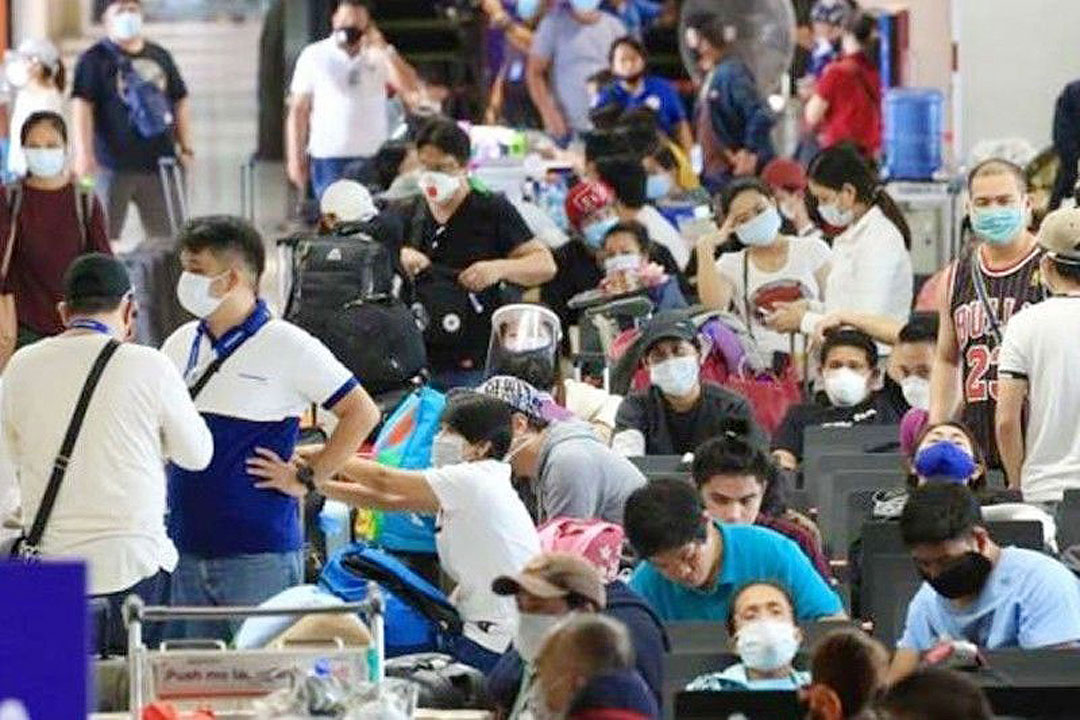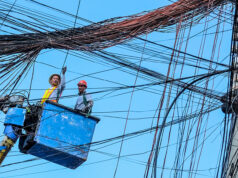Duterte signs Department of Migrant Workers legislation into law

A BILL creating the Department of Migrant Workers (DMW), which will cater to the needs of overseas Filipino workers (OFWs) was signed into law by President Rodrigo R. Duterte on Thursday.
“The establishment of the Department of Migrant Workers happens on the celebration of Rizal day, when we honor not only the exceptional love of the country of Dr. Jose Rizal but also the patriotism, excellence, courage of our modern-day heroes, including our overseas Filipinos,” Mr. Duterte said during a Palace ceremony.
Republic Act 11641, An Act creating the Department of Migrant Workers, gathers all government agencies dealing with OFWs under one department, with the intent of simplifying the process of aiding overseas workers and issuing them documents.
The agencies to be reorganized into the DMW are the Philippine Overseas Employment Administration, the Department of Labor and Employment’s International Labor Affairs Bureau and all Overseas Labor Offices, the National Reintegration Center for OFWs, and the National Maritime Polytechnic.
The Office of the Undersecretary for Migrant Workers Affairs at the Department of Foreign Affairs and the Office of the Social Welfare Attaché of the Department of Social Welfare and Development will also be transferred to the new department.
Mr. Duterte had certified the measure as urgent in May. The Senate passed its version of the bill on Dec. 14, which was then adopted by the House of Representatives.
Senator Emmanuel Joel J. Villanueva, primary sponsor of the bill, called this department a “one-stop-shop” to make things more convenient for OFWs.
“Today, we make good on our promise for our OFWs to be treated better, with dignity befitting heroes who have kept the country’s economy afloat and their families who stay behind and bear the sacrifice of being apart with their parents and relatives,” Mr. Villanueva, who chairs the Senate labor committee, said in a Viber message to reporters on Thursday.
The DMW will have offices in every region to ease the processing of papers, the filing of complaints, and the provision of assistance. Adjudicators for OFW grievances will be deployed to the regional offices.
Mr. Villanueva said the passage of the law will reduce problems faced by OFWs, such as illegal recruiters, abusive employers, lack of reintegration services, and more.
“Now that the law has been signed, we must continue to press on to ensure the spirit of the law — to provide all the services needed by our OFWs under one roof — is fulfilled down to the last letter,” Mr. Villanueva said. “It must be as good as it is advertised.”
“More importantly, the DMW shall also continue to work with other agencies of government to ensure that jobs are created locally and that migration for work will always be an individual’s choice and not a necessity,” he added.
Under the law, a DMW Training Institute will also be established to train and capacitate personnel to handle OFW concerns, as well as conduct in-depth studies on migration and development trends. — Alyssa Nicole O. Tan



